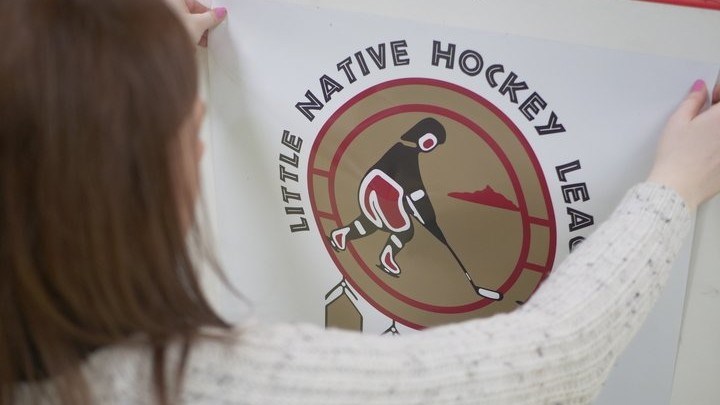There will now be at least a three-year gap between editions of the largest Indigenous youth hockey tournament in Ontario.
That’s because for the third consecutive year, citing COVID-19 safety concerns, officials with the Little Native Hockey League tournament cancelled the 2022 event this past Friday, Jan. 14.
This year’s tourney, more commonly referred to simply as the Little NHL, had been scheduled for March 13 to March 17 in Mississauga.
Though the tournament was slated to be staged in southern Ontario, in the city located just west of Toronto, Nipissing First Nation from northern Ontario was supposed to host the event.
In fact, Nipissing First Nation has been trying to host the tournament since 2020. The pandemic has forced the cancellation of the event each year.
Should they choose to do so, Nipissing First Nation officials could now decide to try and serve as hosts for the 2023 event.
But Scott McLeod, the chief of Nipissing First Nation, is not sure whether that will happen.
“We’re not prepared to make a decision on that yet,” McLeod said. “The (Little NHL) executive has made it clear that Nipissing still has the first right of refusal to be the hosts. We just need some time to think about it.”
McLeod said that decision will in all likelihood take a few months to make.
“We’re going to regroup probably this spring some time with our team and see if they want to do it again,” he said. “They’ve been through a lot in the last couple of years. I wouldn’t criticize them one bit if they said ‘You know what. Let’s just let somebody else take the lead on this’.”
Marian Jacko, the president of the Little NHL executive, praised Nipissing officials for their efforts in trying to make the tournament a reality during the past three years.
“I have to commend their resilience and their dedication to the Little NHL,” she said. “This wasn’t an easy decision for them to come to either.”
The Little NHL tournament was first held in 1971 on Manitoulin Island in the town of Little Current.
That inaugural event featured 17 participating squads.
Prior to the pandemic, the event had grown to the point where it was averaging more than 200 competing clubs in recent years.
“I don’t want people to lose hope in the sense that there won’t be another Little NHL,” Jacko said. “We will continue. It’s such an important event for First Nations in Ontario. So, we will continue to do everything we can for it to go forward.”
McLeod said he himself participated in the tournament during his minor hockey career.
“It’s an experience that still stays with me today,” he said. “Out of times when things were not so positive for First Nation communities across Ontario, this tournament represented a real beacon of hope and excitement for our communities to be not only involved in something but it also surrounded us.
“We were the focal point of this tournament and, speaking for myself, the tournament was bigger than Christmas for us. It was that once-a-year thing that we could really showcase who we were on the ice and just be amongst a lot of our peers and relatives from other First Nation communities and not feel that we didn’t belong.”
McLeod said Indigenous kids, including himself, that played hockey on squads primarily featuring non-Indigenous players often felt out of place.
“When we played in the Little NHL, you really felt you belonged there,” he said. “And that was something the tournament provided that other mainstream hockey couldn’t.”
McLeod also said the Little NHL was extremely meaningful to not only the players.
“These tournaments were more than just about hockey,” he said. “This was the once-in-a-year time where First Nation communities could get together and spend time with other people they know from other First Nations. It was a big social event and it’s always been like that.”
Jacko said the reactions to this year’s cancellation announcement have varied.
“The response is sort of ranging from real sheer disappointment to people thinking no you could have done it,” she said. “On the other end of the spectrum you have people saying this was the best decision because we can’t jeopardize the health and safety of community members.”
McLeod said members of the host committee had met in December. It was at that point they realized they would in all likelihood have to cancel the 2022 tournament.
“It takes a lot of work to cancel,” McLeod said, adding responsibilities would include notifying various rink officials ice time was no longer required and also contacting reps from registered teams as well as sponsors.
“So, our decision before the holidays was one that where it’s not really looking good but let’s not make the decision today because we don’t’ want the staff to work through the holidays.”
Upon returning to work in January, the writing was still on the wall for Nipissing officials who realized another tournament cancellation was required.
“When we came back after the holidays, it wasn’t getting better,” McLeod said of COVID concerns across the province. “In fact, in most ways it’s still getting worse.”
Sam Laskaris, Local Journalism Initiative reporter, Windspeaker.com



